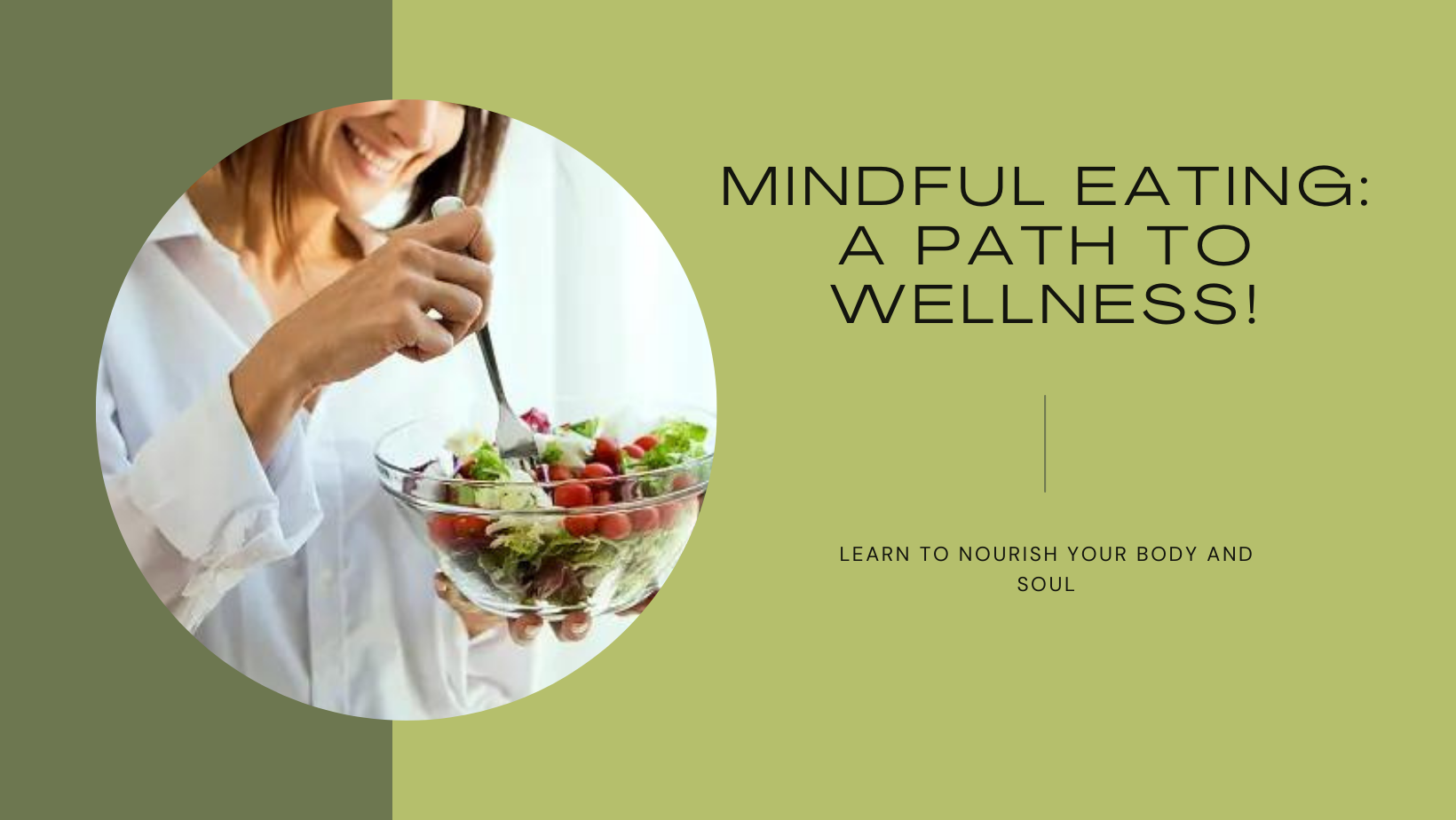Mindful Eating - A Path to Wellness
Mindful Eating – A Path to Wellness

Introduction:
In a world where convenience and fast-paced lifestyles are commonplace, the idea of mindful eating provides a novel viewpoint on our connection to food. Eating mindfully involves not only what we eat but also how we eat. It promotes a more thoughtful and deliberate approach to eating, strengthening the bond between our bodies and the food we eat. This post will discuss the advantages of mindful eating and offer helpful advice on developing a positive relationship with food.
Understanding Mindful Eating:
The foundation of mindful eating is mindfulness, which is the practice of paying attention to the current moment without passing judgment. When it comes to eating, it refers to giving the act of consuming food your whole attention. This method teaches people to notice hunger and fullness cues, enjoy the flavors and textures of each bite, and savor every bite.
Practical Tips for Cultivating Mindful Eating Habits:
- Listen to Your Body:
Pay attention to your body’s signals of hunger and fullness. Consume food only when you’re hungry and quit when you’re full. It may take some practice to become attuned to your body’s signals, but eventually it becomes an instinctive and natural process. - Chew Thoroughly:
Give your meal a leisurely, slow chewing motion. This lets you enjoy the flavors of your food and helps with digestion as well. Set down your utensils in between bites so you can concentrate on enjoying every taste. - Appreciate Your Food’s Journey:
Think about the path your food has taken from farm to table. Consider how much work went into creating and preparing the ingredients. This understanding can help you appreciate the food you’re eating even more. - Engage Your Senses:
Pause to enjoy the flavors, textures, and colors of your food before taking that first bite. Using your senses when dining improves the whole dining experience and helps you develop a stronger bond with your food. - Eat Without Distractions:
Steer clear of eating in front of a computer or television. As an alternative, set aside a distraction-free area for meals. This encourages a thoughtful approach to feeding your body and frees you up to concentrate on the act of eating.
Benefits of Mindful Eating:
Related Article: Building a Balanced Plate for Optimal Fitness
- Weight Management:
Research has connected mindful eating to more healthful weight control. People can choose their foods and portion sizes more wisely if they pay attention to their bodies’ signals of hunger and fullness. Consequently, this may help with weight loss or maintenance. - Improved Digestion:
Eating with awareness induces a state of relaxation in the body that facilitates better digestion. The digestive process becomes more effective when we chew our food thoroughly and enjoy it, which lowers the risk of digestive problems like indigestion or bloating. - Increased Satisfaction:
Eating mindfully enables people to experience higher levels of satisfaction from their meals. People who genuinely savor their food may find that they need smaller portions to feel satisfied, which makes eating more pleasurable and satisfying.
FAQS:
- Can mindful eating help with weight loss?
Yes, mindful eating can contribute to weight loss by promoting awareness of eating habits and preventing overconsumption. - Is mindful eating suitable for everyone?
Absolutely! Mindful eating is beneficial for individuals of all ages and backgrounds. - How can I incorporate mindful eating into my busy schedule?
Start with small steps like chewing slowly and gradually increase your awareness during meals.
Conclusion:
Mindful eating is a transformative practice that goes beyond diets. It’s a lifestyle that nurtures a profound connection with the food we consume. By savoring each bite, we not only enhance our physical health but also foster a positive relationship with the act of nourishing our bodies.
[…] Related Article: Mindful Eating – A Path to Wellness […]
Wow, superb weblog layout! How long have you ever been blogging for?
you made running a blog look easy. The whole glance of your
web site is fantastic, as smartly as the content material!
You can see similar here sklep online
[…] Related article: Mindful Eating – A Path to Wellness […]
[…] Related article: Mindful Eating: A Path to Wellness […]
[…] Related article: Mindful Eating – A Path to Wellness […]